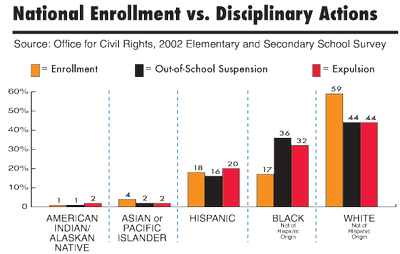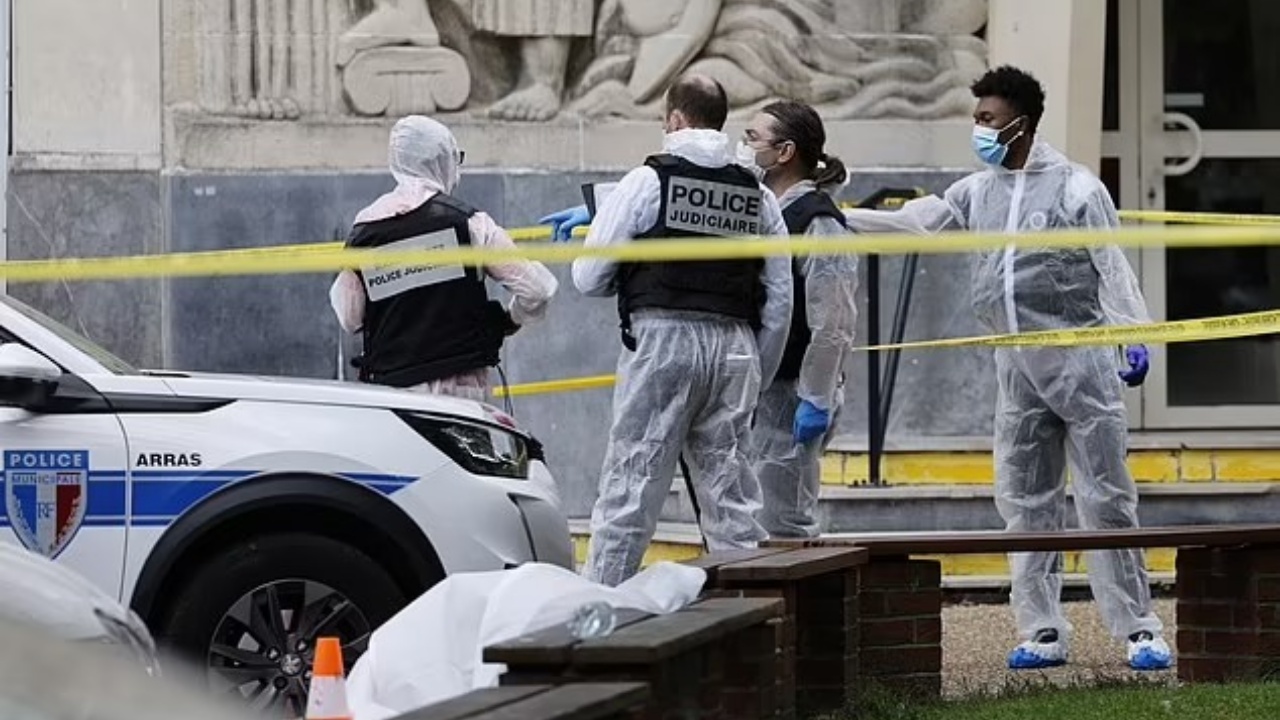School Suspensions: Harmful Consequences And Effective Alternatives

Table of Contents
The Detrimental Effects of School Suspensions on Students
School suspensions, intended as a form of punishment, often lead to a cascade of negative consequences for students. These negative impacts span academic, social-emotional, and long-term spheres, significantly hindering a student's overall development and well-being.
Academic Impact
Suspensions directly disrupt a student's education, leading to a variety of academic setbacks:
- Increased Absenteeism: Time missed due to suspension translates to missed classes, assignments, and crucial learning opportunities, resulting in falling grades and a higher risk of failing courses. This is especially detrimental for students already struggling academically.
- Learning Discontinuity: Catching up on missed material can be incredibly challenging, leaving students feeling overwhelmed and behind their peers. This can lead to further disengagement from school.
- Negative Impact on Standardized Test Scores: The disruption to learning caused by suspension significantly impacts performance on standardized tests, potentially limiting future educational opportunities.
- Increased Likelihood of Future Discipline Issues: Suspension can create a cycle of negative reinforcement, increasing the likelihood of future disciplinary actions and ultimately contributing to higher dropout rates. The stigma associated with suspension can also isolate students further.
Social and Emotional Impact
Beyond academics, school suspensions have profound social and emotional consequences:
- Increased Feelings of Isolation and Alienation: Suspension isolates students from their peers and the supportive school environment, fostering feelings of resentment, anger, and disconnect. This alienation can further hinder their ability to reintegrate successfully into school.
- Higher Risk of Risky Behaviors: Students facing suspension are often more likely to engage in risky behaviors, including substance abuse, delinquency, and increased aggression, due to the lack of structure and positive social interactions provided by school.
- Damage to Self-Esteem: The shame and stigma associated with suspension can severely damage a student's self-esteem, impacting their confidence and sense of self-worth.
- Strain on Family Relationships: Suspensions often place additional stress on families, leading to increased conflict and strained relationships between parents and children.
Long-Term Consequences
The negative impact of school suspensions extends far beyond the immediate consequences:
- Increased Likelihood of Involvement in the Juvenile Justice System: Students suspended from school are at a significantly higher risk of involvement in the juvenile justice system, perpetuating a cycle of negative consequences.
- Reduced Future Educational and Employment Opportunities: A history of suspensions can significantly impact future educational and employment opportunities, limiting a student's life chances. College applications and future employers often consider disciplinary records.
- Negative Impact on Overall Well-being and Mental Health: The cumulative effect of school suspensions can have long-lasting negative impacts on a student's overall well-being and mental health, affecting their ability to thrive in adulthood.
Exploring Effective Alternatives to School Suspensions
Fortunately, numerous evidence-based alternatives to school suspensions exist, offering more effective and humane approaches to student discipline. These alternatives focus on addressing the root causes of misbehavior and fostering positive behavior changes.
Restorative Justice Practices
Restorative justice focuses on repairing the harm caused by misbehavior through dialogue, accountability, and collaboration:
- Collaborative Conflict Resolution: It involves students, victims, and school staff in a process designed to address the harm caused and find mutually agreeable solutions.
- Empathy and Understanding: The process emphasizes empathy, understanding, and reconciliation between those involved, fostering a sense of shared responsibility and accountability.
- Repairing Harm: The focus is on repairing the harm done, rather than simply punishing the offender. This approach can lead to a more positive and productive school environment.
Positive Behavioral Interventions and Supports (PBIS)
PBIS is a proactive approach that focuses on teaching and reinforcing positive behaviors:
- Prevention and Teaching: It emphasizes the prevention of behavioral problems through clear expectations, consistent reinforcement of positive behaviors, and proactive interventions for students at risk.
- Individualized Support: PBIS provides individualized support for students struggling with behavior, addressing the underlying causes of their difficulties.
- Reducing Punitive Measures: By focusing on prevention and positive reinforcement, PBIS significantly reduces the need for punitive measures like suspensions.
Counseling and Mental Health Support
Addressing underlying issues is crucial to effectively addressing behavioral problems:
- Addressing Root Causes: Providing students with access to mental health professionals and support services helps address underlying issues, such as anxiety, depression, or trauma, that may contribute to disruptive behavior.
- Supportive Environment: This creates a more supportive and understanding school environment where students feel comfortable seeking help and support.
- Early Intervention: Early intervention is key to preventing escalation of behavioral problems.
Collaboration with Families and Communities
Effective discipline strategies require collaboration beyond the school walls:
- Shared Responsibility: Involving parents and community members in developing and implementing disciplinary strategies fosters a sense of shared responsibility for student well-being.
- Resources and Support: Providing families with resources and support helps them address challenges at home that may contribute to their child's behavior.
- Stronger Community Ties: This collaborative approach builds stronger community ties and creates a more supportive environment for all students.
Conclusion
School suspensions inflict significant harm on students, impacting their academic progress, social-emotional development, and long-term prospects. The evidence overwhelmingly supports the need for a shift toward more effective alternatives. Restorative justice, PBIS, counseling services, and strong family-community partnerships offer promising avenues for creating supportive and inclusive school environments that prioritize student well-being. Let's work together to replace harmful school suspensions with evidence-based alternatives that support student success and well-being. Learn more about restorative justice, PBIS, and other ways to reduce school suspensions in your community and advocate for change – together we can build better schools for all children.

Featured Posts
-
 School Desegregation Order Terminated Analysis And Outlook
May 02, 2025
School Desegregation Order Terminated Analysis And Outlook
May 02, 2025 -
 Ponants 1 500 Flight Credit Incentive For Paul Gauguin Cruise Sales Agents
May 02, 2025
Ponants 1 500 Flight Credit Incentive For Paul Gauguin Cruise Sales Agents
May 02, 2025 -
 Tragjedi Ne Ceki Sulm Me Thike Ne Qender Tregtare Dy Viktima
May 02, 2025
Tragjedi Ne Ceki Sulm Me Thike Ne Qender Tregtare Dy Viktima
May 02, 2025 -
 Lost Fortnite Skins Which Ones Wont Return
May 02, 2025
Lost Fortnite Skins Which Ones Wont Return
May 02, 2025 -
 Is Fortnite Down Server Status Update 34 20 Downtime And New Features
May 02, 2025
Is Fortnite Down Server Status Update 34 20 Downtime And New Features
May 02, 2025
